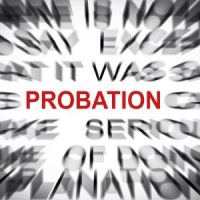Probation Violations and How They Can Affect You

In Florida, probation is a common alternative to incarceration that allows individuals to live in their communities under strict supervision, rather than spending time in jail or prison. This type of alternative sentence comes with specific conditions that must be followed, and violating these terms can lead to serious consequences.
If you’re on probation in the Sunshine State, staying informed about your obligations can help you remain compliant. Should you be in a situation where you are facing accusations of a violation, talking to a Clearwater criminal lawyer can protect your rights and reduce the likelihood of severe penalties.
What Is Considered Non-Compliance?
By placing someone on probation, the court aims to assist them in being a productive member of society while still holding them accountable for their actions. Probation can also be part of a plea bargain to reduce or eliminate jail time in exchange for compliance with specific conditions.
Probation terms vary widely depending on the nature of the offense and the individual’s circumstances. Common probation conditions include maintaining employment, regularly reporting to a probation officer, refraining from using drugs or alcohol, and avoiding any additional criminal activity.
Violations include:
- Failing to report to a probation officer. You will face violation penalties if you miss a scheduled meeting with your probation officer without prior notice or approval.
- Testing positive for drugs or alcohol. If your probation terms prohibit drug or alcohol use, testing positive can lead to a violation.
- Not paying fines or restitution. Many probation conditions require payment of fines, restitution, or court fees. Failing to make these payments can be considered non-compliance.
- Traveling outside approved areas. When your probation restricts you from leaving a specific area, any travel outside of this region without permission could lead to penalties.
- Committing another crime. Naturally, being arrested or convicted of a new offense is typically grounds for immediate probation revocation.
Consequences of violating probation terms will range, depending on the severity of the violation and your history of compliance. For example, you may face stricter conditions, more frequent check-ins, or additional requirements like community service. It is also possible a court will extend the duration of your probation, keeping you under supervision for a longer period.
In serious cases, a judge may revoke your probation and impose a jail or prison sentence, especially if the violation involves new criminal behavior. It also is possible you will be required to pay fines as a penalty for violating probation conditions.
How Do I Protect Myself After Being Accused of a Violation?
As soon as you are accused of violating your probation, it’s essential to act quickly in order to avoid further complications. A key first step is to connect with a Clearwater criminal lawyer who can help you understand the violation allegations, advise you on your rights, and assist you in preparing for violation hearings.
Do you want to learn more about Florida parole terms and penalties for non-compliance? Talk to the legal team at King Law Group. Schedule your confidential consultation to learn more.

